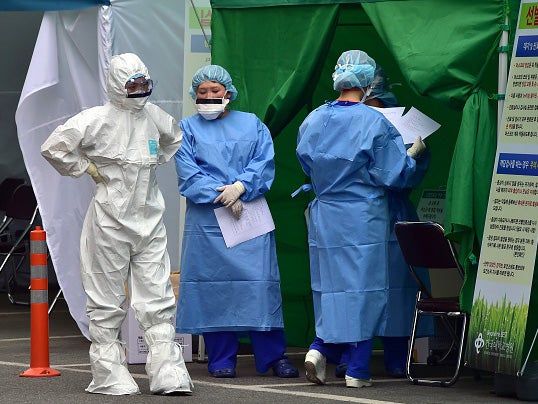Mers virus: 5 things you need to know about the disease in the Philippines
Filipino health officials confirm second case but the World Health Organisation insists the outbreak is not an international emergency

The Philippines has confirmed their second case of Middle East Respiratory Syndrome (Mers) after a foreign national tested positive for the disease.
The 36-year-old foreigner, who is believed to arrived in the Philippines from the Middle East, is currently being held under quarantine.
The country’s Health Secretary Janette Garin said several of the people the victim had come in close contact with had been traced with seven people believed to be under home quarantine.
How deadly is the disease?
The first death was recorded in Saudi Arabia in 2012 and since then has killed at least 450 people have died.
The World Health Organisation said it has been notified of 1,293 but the number of cases is believed to be much higher.
Approximately 36 per cent of all people infected with the virus have died and the disease seems to predominantly affect older people and people with weakened immune systems or long term illnesses.
Which countries are affected?
The majority of cases have been recorded in Saudi Arabia with just over 1,000 of cases but South Korea is currently in the grips of an outbreak which has killed 33 people out of 182 cases confirmed.
Around 2,400 people are being monitored for signs of the disease in the country.
Another 22 countries have had reported cases, including the United Kingdom, but few have had seen more than one or two instances and the majority are cases which were contracted abroad.
What are the symptoms?
Typical MERS symptoms include flu like symptoms including fever, a cough and shortness of breath. Pneumonia is common but does not always occur. Gastrointestinal problems, including diarrhoea, have also been reported.
In severe cases it causes respiratory failure.
The virus is thought to have first originated in camels before passing to humans. Although person to person transmission is possible it is unlikely unless there is close physical contact and the majority of cases so far seem to infect health care professionals.
It is currently not known how the virus is spread but it is believed to be found in water droplets when an infected person sneezes or coughs.
How does it compare to other diseases?
The last outbreak of Severe Acute Respiratory Syndrome (SARS) in 2003 saw approximately 774 people die out of 8,098 people affected worldwide- a death rate of 9.6 per cent. Compared to this MERS is more deadly given its death rate of 36 per cent but it is unclear what the reasons for this are.
The other recent epidemic, Ebola, was similarly only spread by close human to human contact, dwarfs MERS in terms of scale with 11,236 deaths out of 27,551 cases with death rates varying between 25 and 90 per cent during outbreaks.
But this is partially to do with the poor communications and infrastructure in the three majorly affected countries, Liberia, Guinea and Sierra Leone. Poor local knowledge and rituals such as washing the dead before burial also contributed to the crisis.
What is the treatment?
There is currently no vaccine or specific treatment available for the disease and health officials focus has so far been on prevention and minimising exposure.
The WHO have recommended enforcement of the standard hygiene practices, particularly when visiting farms, barns, markets or anywhere camels could be, including washing hands regular and minimising contact with affected animals.
They warn people with diabetes, renal failure, chronic lung disease, and immunocompromised persons to avoid all contact with camels such as drinking raw camel milk or eating their meat.
They are currently not recommending travel restrictions to any of the majorly affected countries and said the outbreak in South Korea did not constitute a global emergency.
Additional reporting by the Associated Press
Subscribe to Independent Premium to bookmark this article
Want to bookmark your favourite articles and stories to read or reference later? Start your Independent Premium subscription today.

Join our commenting forum
Join thought-provoking conversations, follow other Independent readers and see their replies